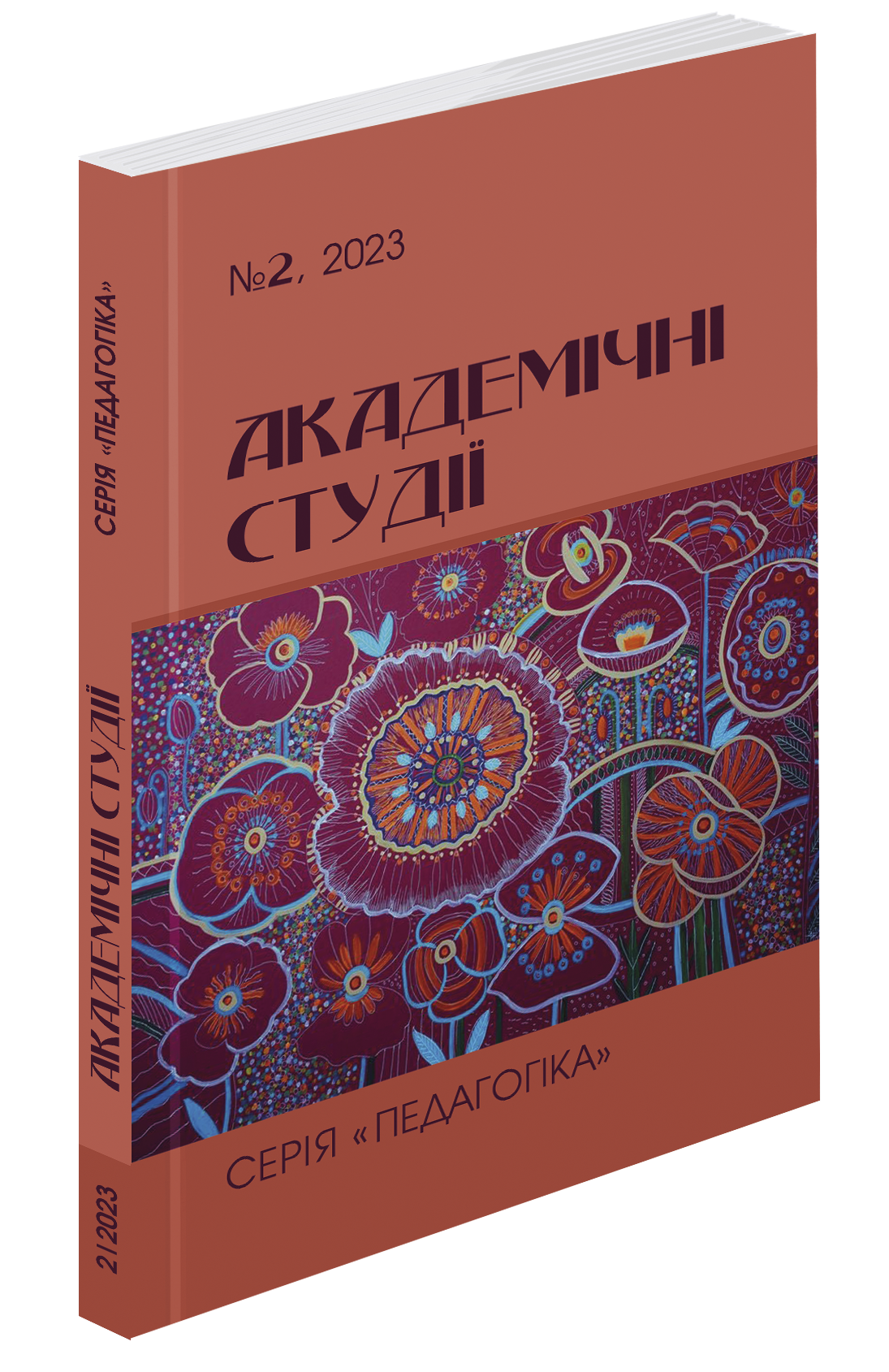Abstract
The analysis of foreign analytical documents, scientific and pedagogical literature is presented with the aim of revealing the social aspects of managing the quality of doctoral education in a global dimension. Social aspects of doctoral training are today leading the agendas at the levels of government policies, institutional and sub-institutional university practices in many countries of the world. Crisis phenomena caused by inequality, wars, environmental problems form new challenges that universities face in the 21st century. The field of doctoral education is no exception and responds sensitively to socio-political and economic changes. The issue of social support for vulnerable categories of doctorallevel education seekers - refugees, internally displaced persons, students remaining in territories close to the war zone, doctoral students in crisis life situations, and other categories - is becoming increasingly acute. The prolonged full-scale war on the territory of Ukraine necessitates a review of domestic approaches to the interpretation of the essence of such concepts as "university social responsibility", "quality culture", "social mission of the university" and others. The threat of losing an entire generation of scientists caused by the war highlights the urgency of prioritizing humane values in the management of domestic doctoral education, which will allow us to look at its needs and problems primarily through a social prism - permanent social and academic support for graduate students and academic supervisors with refugee status, social adaptation graduate students and academic supervisors, in particular in the conditions of displaced higher education institutions within the country, patterns of preserving their mental health, organizational and financial aspects (additional funding of research projects, extension of deadlines for continuation/completion of dissertation studies).
References
Birnbaum, R. (2000). The life cycle of academic management fads. The Journal of Higher Education, 71(1), 1-16. https://doi.org/10.2307/2649279.
Cardona, L., Pardo, M. & Dasi, A. (2020). The institutional isomorphism in the context of organizational changes in higher education institutions. International Journal of Research in Education and Science (IJRES), 6(1), 61-73.
DiMaggio, P. J., & Powell, W. W. (1983). The Iron cage revisited: Institutional Isomorphism and Collective Rationality in Organizational Fields. American Sociological Review, 48(2), 147–160.
Manarbek Gulden, Kondybayeva Saltanat, Doszhan Raigul, Turarov Dauren & Abylay Assel, (2020). Quality management of higher education: Innovation approach from perspectives of institutionalism. An exploratory literature review, Cogent Business & Management, 7:1, 1749217, DOI: 10.1080/23311975.2020.1749217
Marginson, S. (2007). Globalisation, the «Idea of a University» and Its Ethical Regimes. Higher Education Management and Policy. Vol. 19. Р. 19-34.
Nerad, M. et al (eds)., (2022). Towards a Global Core Value System in Doctoral Education. London: UCL Press. https://doi.org/10.14324/111.9781800080188
Seyfried, M., Ansmann, M., & Pohlenz, P. (2019). Institutional isomorphism, entrepreneurship and effectiveness: The adoption and implementation of quality management in teaching and learning in Germany. Tertiary Education and Management, 25(2), 115-129. https://doi.org/10.1007/s11233- 019-09022-3.
Stensaker, B. (2008). Outcomes of quality assurance: A discussion of knowledge, methodology and validity. Quality in Higher Education, 14(1), 3-13. https://doi.org/10.1080/13538320802011532.
Пасько Н. А. Інституційний аломорфізм як альтернатива інституційному ізоморфізму університетів в добу глобалізації. Педагогічні науки: теорія, історія, інноваційні технології. 2015. № 5. С. 325-332. Режим доступу: http://nbuv.gov.ua/UJRN/pednauk_2015_5_42.

